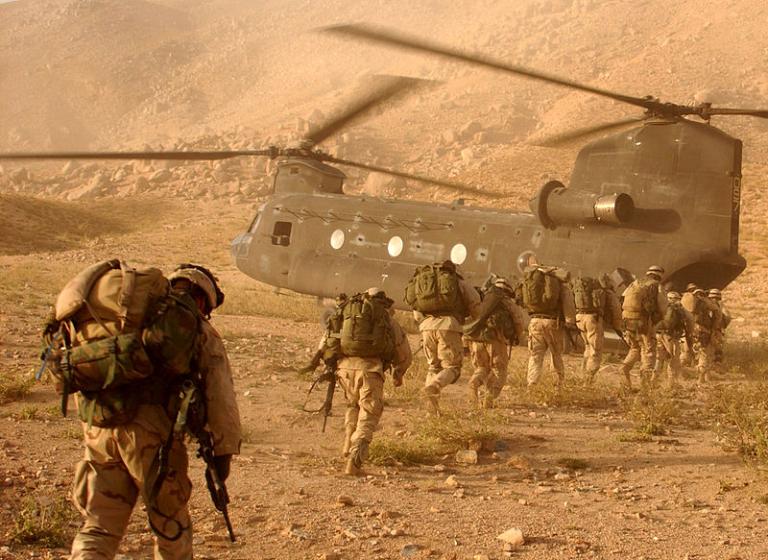
(Wikimedia Commons public domain)
Here’s another pair of passages excerpted from the fascinating and very valuable John L. Esposito and Dalia Mogahed, Who Speaks for Islam? What a Billion Muslims Really Think (New York: Gallup Press, 2007):
Why Do They Hate Us and Our Way of Life?
This question, raised in the immediate aftermath of 9/11, looms large following continued suicide and other terrorist attacks and the dramatic growth of anti-Americanism. A common answer from some U.S. politicians and experts has been: “They hate our way of life, our freedom, democracy, and success.”
Considering the broad-based anti-Americanism not only among radicals but also among a significant mainstream majority in the Muslim world (and indeed in many other parts of the world), this answer does not satisfy. Although there are many common grievances expressed in the Muslim world, do the politically radicalized and moderates differ in attitudes toward the West?
- When asked what they admire about the West, the politically radicalized and moderates mention these top three spontaneous responses: (1) technology; (2) the West’s value system, hard work, self-responsibility, rule of law, cooperation; and (3) fair political systems, democracy, respect of human rights, freedom of speech, gender equality.
- Contrary to popular belief that extremists are anti-democracy, a significantly higher percentage of the politically radicalized (50% vs. 35% of moderates) say that “moving toward greater governmental democracy” will foster progress in the Arab/Muslim world.
Moreover, when considering relations between the Muslim world and the West, the politically radicalized do not simply reject the West: No significant difference exists between the percentage of the politically radicalized and moderates who say that “better understanding between the West and Arab/Islamic cultures concerns me a lot.”
And even more surprising, the politically radicalized are more likely than moderates to associate Arab/Islamic nations with an eagerness to have better relationships with the West: 58% of the politically radicalized (versus 44% of moderates) express this. (80-81)
While the spread of democracy has been the stated goal of the United States, with few exceptions, majorities in virtually every nation with majority or sizable Muslim populations disagree that the United States is serious about the establishment of democratic systems in the region:
- Only 24% in Egypt and Jordan and 16% in Turkey agree that the United States is serious about establishing democratic systems.
- The largest groups in agreement are in Lebanon (54%), Sierra Leone (68%), and Afghanistan (53%). (83)
It seems that the United States has a serious public relations or image problem in the Muslim world. Knowing precisely what it is and what underlies it is, it seems obvious to me, essential to finding a way to fix it.










